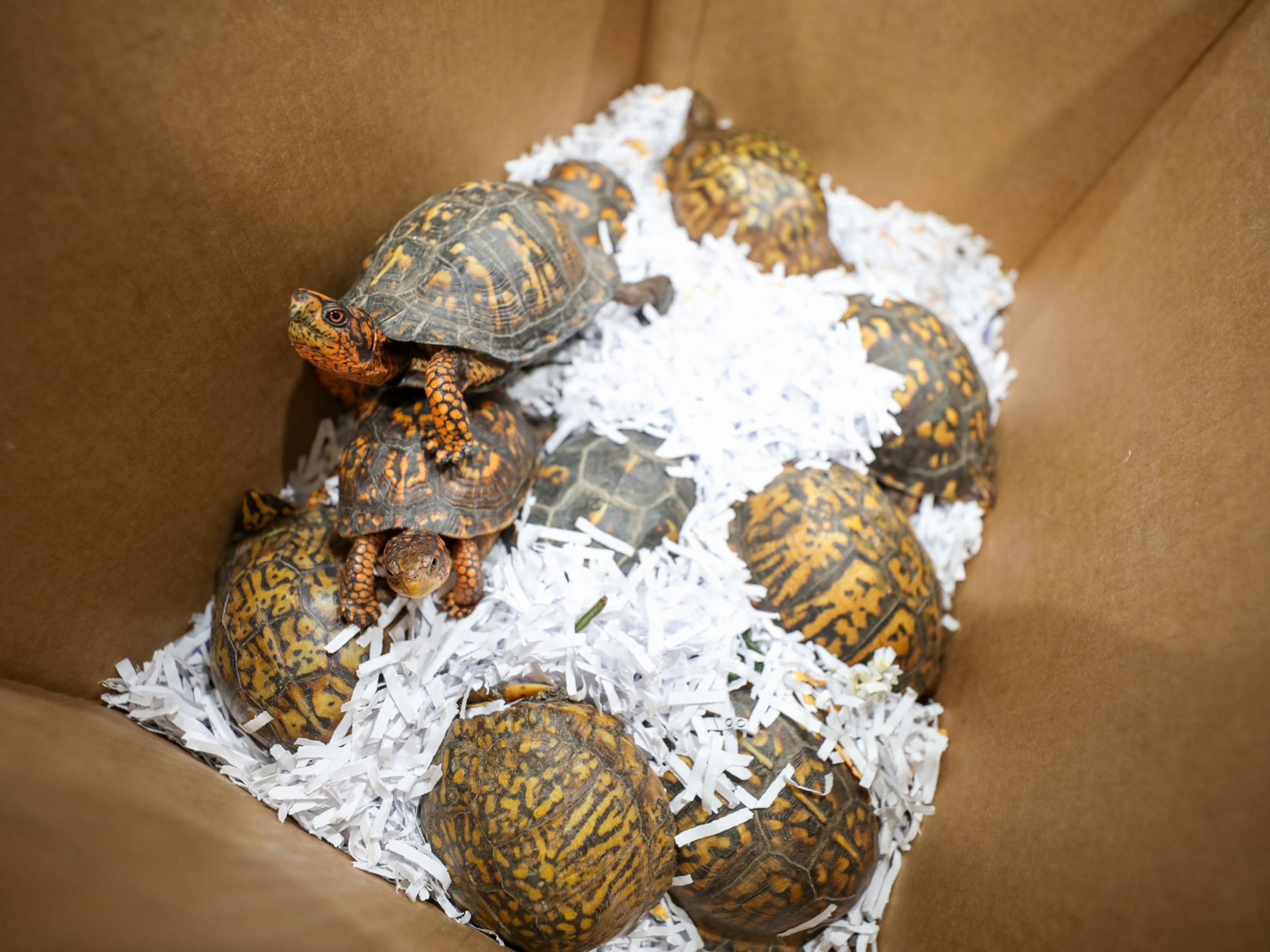
How you can help pangolins
The most trafficked mammals in the world are heading toward extinction unless the illegal trade can be stopped.
Pangolins, the world’s only mammal with scales, are being trafficked by the ton. In the first eight days of April 2019 alone, authorities seized two 14-ton shipments of pangolin scales in Singapore, representing an estimated 72,000 animals and worth a combined $90 million. In February, Malaysian law enforcement seized a 33-ton shipment of mostly whole, frozen pangolins.
The scales are used in traditional Chinese medicine, for everything from alleviating arthritis to helping nursing mothers with lactation, and their meat is considered a delicacy by some in Asia. They’re also hunted for bushmeat in central and West Africa. While we don’t know exactly how many are left in the wild, it’s obvious that this level of hunting isn’t sustainable.
Sometimes called “pinecones with legs,” pangolins are very sensitive creatures and for the most part don’t do well in captivity. In the wild, they’re slow to reproduce and give birth to only one baby at a time. Pangolins are nocturnal, solitary, and shy—nearly impossible for even the most dedicated field researchers to get a glimpse of. Just because you can’t see them doesn’t mean you can’t help them. Here are some suggestions:
- Raise awareness about pangolins by sharing the National Geographic pangolin story on social media. One of the biggest challenges facing pangolins is that so few people know what they are and why they’re in such peril. As National Geographic Photo Ark photographer Joel Sartore says, “You won’t save what you don’t love.”
- Don’t eat pangolin meat, and don’t buy pangolin products.
- Contribute to the new Pangolin Crisis Fund. A partnership between the nonprofits Wildlife Conservation Network, Save Pangolins, and the Leonardo DiCaprio Foundation, the fund will put 100 percent of every dollar raised directly toward pangolin conservation.
- Help kids learn about pangolins and what makes them special. Half the profits from a new children’s book called “Pangy the Pangolin” go to benefit Save Pangolins.
- Support Wildlife Watch, National Geographic’s investigative reporting project dedicated to shining a light on wildlife crime and exploitation. Wildlife Watch is a joint project between National Geographic Partners and National Geographic Society. You can contribute to this work here.
You May Also Like
Go Further
Animals
- Octopuses have a lot of secrets. Can you guess 8 of them?
- Animals
- Feature
Octopuses have a lot of secrets. Can you guess 8 of them? - This biologist and her rescue dog help protect bears in the AndesThis biologist and her rescue dog help protect bears in the Andes
- An octopus invited this writer into her tank—and her secret worldAn octopus invited this writer into her tank—and her secret world
- Peace-loving bonobos are more aggressive than we thoughtPeace-loving bonobos are more aggressive than we thought
Environment
- This ancient society tried to stop El Niño—with child sacrificeThis ancient society tried to stop El Niño—with child sacrifice
- U.S. plans to clean its drinking water. What does that mean?U.S. plans to clean its drinking water. What does that mean?
- Food systems: supporting the triangle of food security, Video Story
- Paid Content
Food systems: supporting the triangle of food security - Will we ever solve the mystery of the Mima mounds?Will we ever solve the mystery of the Mima mounds?
- Are synthetic diamonds really better for the planet?Are synthetic diamonds really better for the planet?
- This year's cherry blossom peak bloom was a warning signThis year's cherry blossom peak bloom was a warning sign
History & Culture
- Strange clues in a Maya temple reveal a fiery political dramaStrange clues in a Maya temple reveal a fiery political drama
- How technology is revealing secrets in these ancient scrollsHow technology is revealing secrets in these ancient scrolls
- Pilgrimages aren’t just spiritual anymore. They’re a workout.Pilgrimages aren’t just spiritual anymore. They’re a workout.
- This ancient society tried to stop El Niño—with child sacrificeThis ancient society tried to stop El Niño—with child sacrifice
- This ancient cure was just revived in a lab. Does it work?This ancient cure was just revived in a lab. Does it work?
- See how ancient Indigenous artists left their markSee how ancient Indigenous artists left their mark
Science
- Jupiter’s volcanic moon Io has been erupting for billions of yearsJupiter’s volcanic moon Io has been erupting for billions of years
- This 80-foot-long sea monster was the killer whale of its timeThis 80-foot-long sea monster was the killer whale of its time
- Every 80 years, this star appears in the sky—and it’s almost timeEvery 80 years, this star appears in the sky—and it’s almost time
- How do you create your own ‘Blue Zone’? Here are 6 tipsHow do you create your own ‘Blue Zone’? Here are 6 tips
- Why outdoor adventure is important for women as they ageWhy outdoor adventure is important for women as they age
Travel
- This royal city lies in the shadow of Kuala LumpurThis royal city lies in the shadow of Kuala Lumpur
- This author tells the story of crypto-trading Mongolian nomadsThis author tells the story of crypto-trading Mongolian nomads
- Slow-roasted meats and fluffy dumplings in the Czech capitalSlow-roasted meats and fluffy dumplings in the Czech capital




